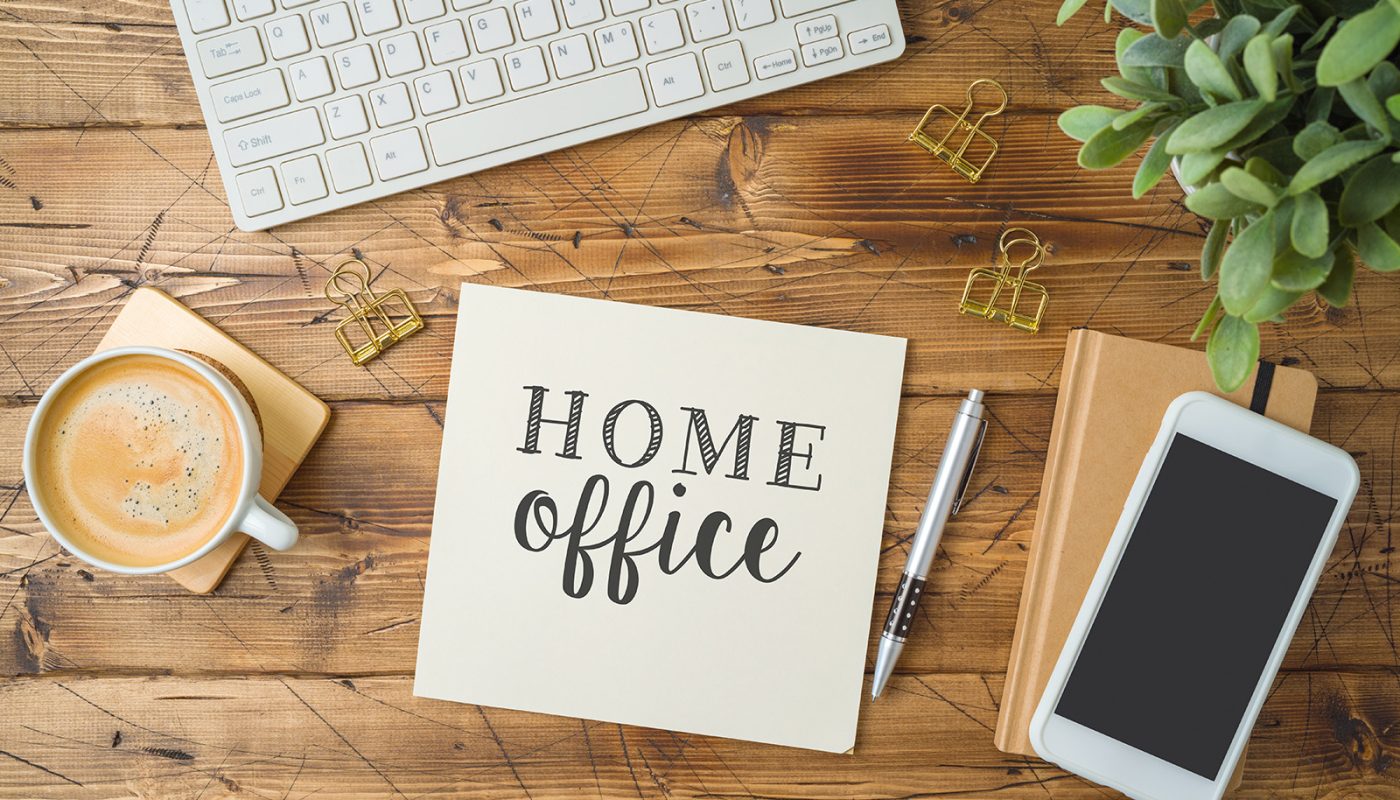The next opening steps are in the pipeline, home office is only recommended and private activities such as going to restaurants, fitness, and museums can be resumed. What will the post-pandemic work environment look like? Do you have to go back to the office like before?
To answer the above question: Most likely not, but it depends somewhat on your employer. The world of work and the requirements of employees have both undergone significant changes as a result of Corona. According to a study by NetComm Suisse Observatory (2020) more than 40 percent of the interviewed companies intend to allow their employees complete flexibility regarding home office, and another 27% see it as a set element of the workload. 38% of the companies that did not allow home office at all before the pandemic will implement it as a fixed component. An additional transformation is that due to the wide variety of work locations, there is no longer a need for as many offices. The attractiveness of co-working spaces thus increased enormously.

Figure 1: Future potential of co-working spaces as companies show high interest (Netcomm Suisse Observatory, 2020).
Vox (Molla, 2020) states that “working from home will be the new normal for many” and a glimpse across other portals tells you that this is likely to be the case. Two words that one stumbles over more and more often in articles related to future work environments are New Work. But what is that?
New Work
“New work” has been a used term for some time, but the pandemic has given it a whole new meaning. It is the “megatrend” of today’s working world and companies like BMW have already implemented this work method (Klauss, 2021). To implement “New Work”, it is not sufficient to simply modify home office regulations and give employees flexibility in this regard. It requires a comprehensive digital infrastructure that makes it possible to work anytime and anywhere. The culture of the company must be flexible, agile, and self-determining and feature flat hierarchies. The National Center for Biotechnology Information has identified the following six fields of action for New Work:
- Digital work infrastructures that enable flexible, mobile, and efficient work
- Work processes must be set up in such a way that they enable mobile, high-quality, resource-efficient, and productive collaboration between employees and with digital tools
- The leadership style must empower employees with a high degree of self-responsibility, and promote an open and transparent exchange at all levels.
- Fixed organizational structures have to be dissolved and replaced by flexible thematic and project-oriented structures. This allows for a rapid reaction to tasks that concern several departments.
- To continuously develop the organization, time away from the daily business must be dedicated to innovation and the future. Employees must be given the opportunity to participate in these futuristic projects and labs and to contribute their ideas.
- Finally, the company’s business model must be able to function in the digital space and continuously be developed and updated to remain up-to-date. (Klauss, 2021)
With those six elements companies benefit from an effective collaboration among employees through the use of digital tools, clouds, and networking. New Work is geared towards making better use of employees’ individual resources. This meets the demands of employees and is accompanied by the latest trend of “work-life blending”, the evolution of work-life balance (Digital Minds, 2021). Some see the merging of the two areas as critical, others appreciate the liberties. The “Zukunftsinstitut” considers work-live-blending as a future model and justifies: “Where the boundary between work and private life disappears, personal needs can be better taken into account in the day. This not only creates relaxation and a better quality of life but also increases the joy of work.” The Institute has also examined other aspects of a future professional environment related to “New Work” and concludes that the possibility of unattached work makes the office more attractive for collaboration. At home, one does work that requires a high level of concentration, while in the office, collaborative tasks are completed. The interpersonal aspect of the office and the cultural life has taken on a much higher focus (Zukunftsinstitut GmbH, 2021).
Only time will tell which trends will prevail and which forms of work will become established. However, the demands of employees have increased and what is clear is that home office will not be a memory of the past but a constant component of our lives. So, settle in and enjoy the new opportunities to work wherever you are (as long as your employer allows it).
In the previous blogposts you will find, among other things, the most important gadgets to ensure that your home office is a success and the best way to structure your day and get moving.
Have fun exploring!
Bibliography
Digital Minds. (2021, February 05). New Work: Definition & Hintergründe. Retrieved from https://www.digital-minds.agency/new-work/
Klauss, T. (2021). Vom Home-Office zur New Work. wissensmanagement, 1, pp. 16-19. Retrieved from https://www.ncbi.nlm.nih.gov/pmc/articles/PMC7881341/pdf/43443_2021_Article_207.pdf
Molla, R. (2020, April 14). This is the end of the office as we know it. Retrieved from VOX: https://www.vox.com/recode/2020/4/14/21211789/coronavirus-office-space-work-from-home-design-architecture-real-estate
Netcomm Suisse Observatory. (2020, September). Retrieved from Auswirkungen der COVID-19-Krise auf Home-Office-Regelungen: https://uploads-ssl.webflow.com/5dbfeeae4f3e35532b079b8e/5f747d22d4e52610a9793afb_booklet_studie_rekrutierung_home_office_b2b-2.pdf
Zukunftsinstitut GmbH. (2021). Megatrend New Work. Retrieved from https://www.zukunftsinstitut.de/dossier/megatrend-new-work/




Interesting topic!
Thanks!
Hey Tanja, thanks for sharing. Does your company have a plan for New Work?
Hello Nicole, unfortunately not that I know of. But it is definitely something we have to focus on 🙂
Thank you for this informative post! I would actually prefer to have freedom of choice between working in the office or at home, but probably not all companies will give an opportunity to choose.. And this one “The leadership style must empower employees with a high degree of self-responsibility, and promote an open and transparent exchange at all levels” is the key for us to have a right to choose. Cannot wait to read more!
I couldn’t agree more! Maybe as many otehrs also would like to have this freedom they need to offer it in order to remain an attractive employer. After all, companies also have to compete for the “best people”.
Hi Tanja – Homeoffice will definitely be much more accepted than before the pandemic. The enforced situation, modern technology and trust from the employer’s side really changed the way we will work in the future! Are there any studies analysing the number of working hours before and after the pandemic? Did efficiency or productivity go up or down? This might influence the acceptance and trust level on the employer’s side for the future. Take care – Ritchie
Hi Ritchie, nice to have you back on my blog! I already read about these aspects. It seems that people work much more from home and are also more efficient. So a win situation from the employers perspective. Let’s hope they see it that way 🙂 Take care too!
Interesting post! I didn’t know the statement about New York!
It reminded me of the song Empire State of Mind.
Man, this song is a catchy tune and now I am missing travelling.
The words sound so similar don’t they? Indeed a great song! Let’s hope that we can go back to normal and visit such beautiful places 🙂